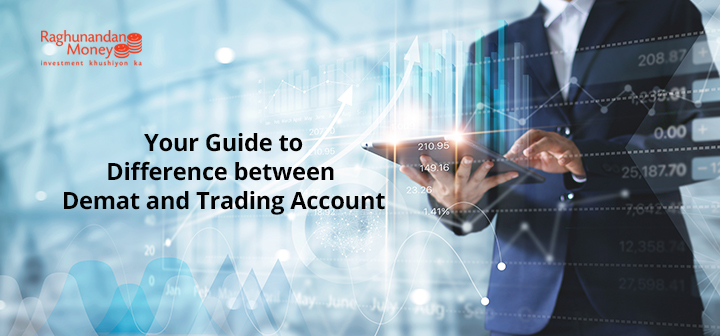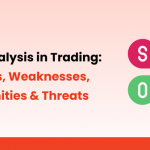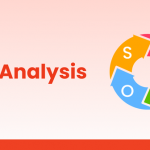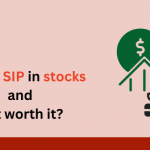We have often noticed people getting confused between a Demat Account and a Trading Account and use both the terms interchangeably. Though they appear to be the same, there is a huge difference between a Demat Account and a Trading Account especially on the basis of the purpose served by each of them.
For people who are interested in starting stock market investments, it is essential to understand the difference between the Demat Account and Trading Account. It is essential to be aware of the basic terms related to the stock markets before the investors and traders pool in their money into it.
Let us understand what Demat and a Trading account is and how the two accounts are different from each other.
What is a Demat Account?
Demat Account or Dematerialization Account is an account that allows the investors to hold their shares in an electronic format. A Demat account converts the physical shares of investors into electronic format which is known as the dematerialization of account. When an investor opens a Demat account he/she receives a Demat account number which allows the investor to settle the trade electronically. A Demat account is just like a person’s bank account. It gets credited when the account holder buys new shares and is debited on the sale of shares.
In order to have a Demat account; it is not necessary for a person to have shares held by them. You can open a Demat account and have a zero balance in it.
What is a Trading Account?
A trading account is an account that is required by the investors and traders to carry out their trade activities. When a company issues shares in the stock market then these shares can be traded electronically for which the investors need a special account called the trading account. You can open a trading account with the help of your stockbroker. Every trading account comes with a unique trading id which gives access to trading transactions.
Differences between Demat and Trading Account
On the basis of function: The major difference between a Demat account and a trading account is on the basis of the functions performed by these two accounts. A Demat account is used for holding the securities in a dematerialized format or in an electronic format.
On the other hand, a trading account is primarily used for buying and selling of securities. This means that when you buy security your Demat account is credited and when you sell a security, the Demat account is debited.
Nature of Accounts: A Demat Account is similar to a bank account that is credited and debited when the account holder buys and sells the securities. It works like a savings bank account. On the other hand, a trading account is just like a current account. A trading account acts as a linking account between the Demat account and the bank account of the investor. It is used for carrying out buying and selling of securities.
Role of the Accounts: Both, the Demat Account and the trading account are essential for carrying out stock trading transactions. When an investor buys shares of any company, the amount equivalent to the value of shares the investor is buying is debited from his/her bank account and the shares are reflected in the account holders’ Demat account.
Likewise, when an investor sells the shares previously held by him/her the amount of money is credited to the investors’ bank account, and the number of shares is debited from the Demat account. Thus, in order to carry out stock market trading transactions, it is essential for an investor to have both a Demat and a trading account.
It is possible for an investor to have a Demat account alone provided the only purpose of the investor is to hold the shares in an electronic format. For instance, if a person wants to apply for an IPO then having a Demat account is enough as it is required to hold the shares allotted to the investor. However, if the investor wishes to trade these shares then he/she will be required to have a trading account in place.
On the other hand, if the investors wish to trade only in futures and option then they are required to have a trading account. In this case, it is possible for the trader to carry on trade without having a Demat account using the trading account. However, if the investor aims to deal in equities that having a Demat account in place is a must.
About Author

Stock Trading Now trade in ₹9 Per Order or ₹ 999 Per Month Plans.
Future & Options Access F&O contracts with advanced tools for hedging and speculation.
Currency Trading Trade in major currency pairs and manage forex exposure efficiently.
Commodity Trading Diversify Trading with MCX & NCDEX by Trading in Gold, Silver, Base Metals, Energy, and Agri Products.
Margin Trading Funding Boost your buying power with upto 5X, Buy now Pay Later
Algo Trading Back test, Paper Trade your logic & Automate your strategies with low-latency APIs.
Trading View Leverage Trading View charts and indicators integrated into your trading platform.
Advanced Options Trading Execute multi-leg option strategies with precision and insights.
Stock Lending & Borrowing Earn passive income by lending stocks securely through SLB.
Foreign Portfolio Investment Enable NRIs and FPIs to invest in Indian markets with ease and compliance.
IPO Invest in upcoming IPOs online with real-time tracking and instant allotment updates.
Direct Mutual Funds 0% Commissions by investing in more than +3500 Direct Mutual Fund Scheme.
Corporate FDRs Earn fixed returns with low-risk investments in high-rated corporate fixed deposits.
Stocks SIPs Build long-term wealth with systematic investment plans in top-performing stocks.
Bonds & NCDs Access secure, fixed-income investments through government and corporate bond offerings.
Depository Services Safely hold and manage your securities with seamless Demat and DP services with CDSL.
Insurance One-Stop Destination For All Your Insurance Needs. Compare Quotes from Top Insurers & save bigs.
Journey Tracing our growth and milestones over time.
Mission & Vision Guided by purpose, driven by long-term vision.
Why RMoney Platform Smart, reliable platform for all investors' needs.
Management Experienced leadership driving strategic financial excellence.
Credentials Certified expertise with trusted industry recognition.
Press Release Latest company news, updates, and announcements.
Testimonials Real client stories sharing their success journeys.
7 Reasons to Invest Top benefits that make investing with us smart.
SEBI Registered Research Trusted insights backed by SEBI-compliant research.
Our Technology Advanced tools enabling efficient online trading.
Calculators Access a suite of smart tools to plan trades, margins, and returns effectively.
Margin Calculator Instantly check margin requirements for intraday and delivery trades.
MTF Calculator Calculate MTF funding cost upfront to ensure full transparency before placing a trade.
Brokerage Calculator Know your exact brokerage charges before placing any trade.
Market Place Explore curated investment products and trading tools in one convenient hub.
RMoney Gyan Enhance your market knowledge with expert blogs, videos, and tutorials.
Performance Tracker Track our research performance with full transparency using our performance tracker.
Feedback Share your suggestions or concerns to help us improve your experience.
Downloads Access important forms, software, and documents in one place.
Locate Us Find the nearest RMoney branch or service center quickly.
Escalation Matrix Resolve issues faster with our structured support escalation process.
Back Office Log in to view trade reports, ledger, and portfolio statements anytime.
Account Modification Update personal or bank details linked to your trading account.
Fund Transfer Transfer funds instantly online with quick limit updation to your trading account.
Bank Details View our registered bank account details for seamless transactions by NEFT, RTGS or IMPS.
How to Apply IPO Step-by-step guide to apply for IPOs using your trading account.
RMoney Quick Mobile App Trade on-the-go with our all-in-one mobile trading app.
RMoney Quick login Quickly access your trading account through the RMoney Quick web-based trading.
RMoney Rocket Web Version Experience powerful web-based trading with advanced tools for algo traders.
RMoney Rocket Mobile Version Trade anytime, anywhere with our feature-rich mobile trading platform.




















